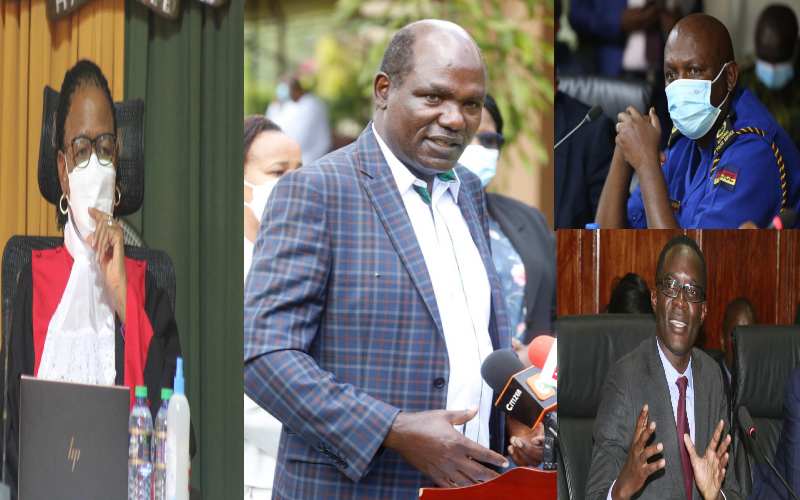×
The Standard e-Paper
Fearless, Trusted News

Some of the key people to watch ahead of the August 9 general election.
As the political tempo rises ahead of the August 9 General Election, six senior government officials hold the key to a successful, credible, fair and peaceful transition.